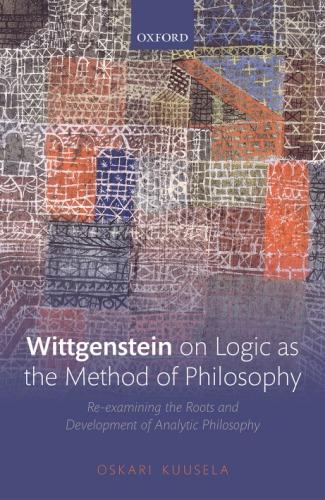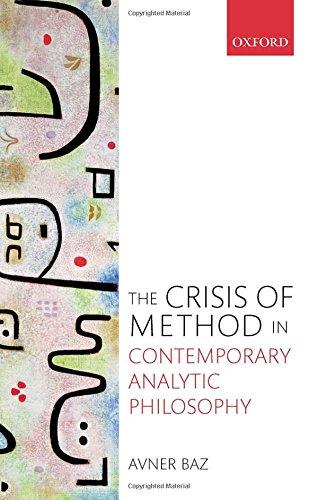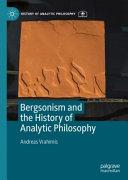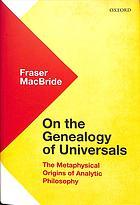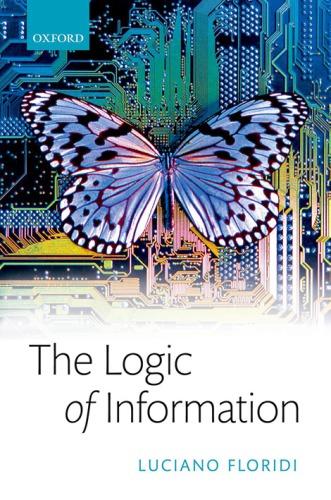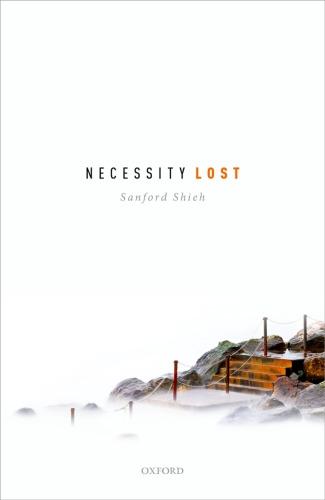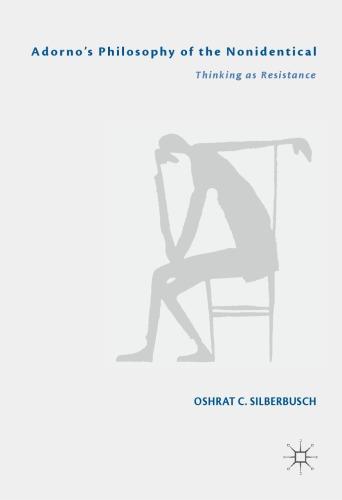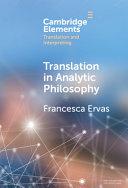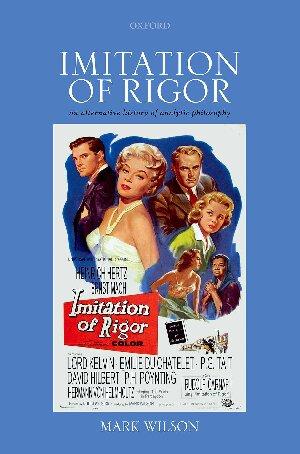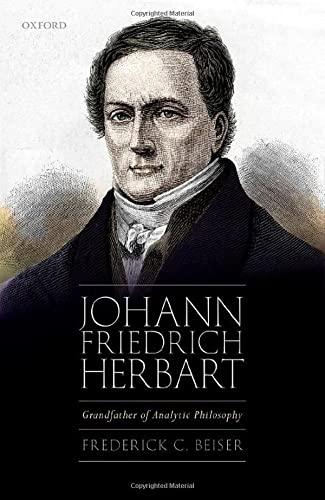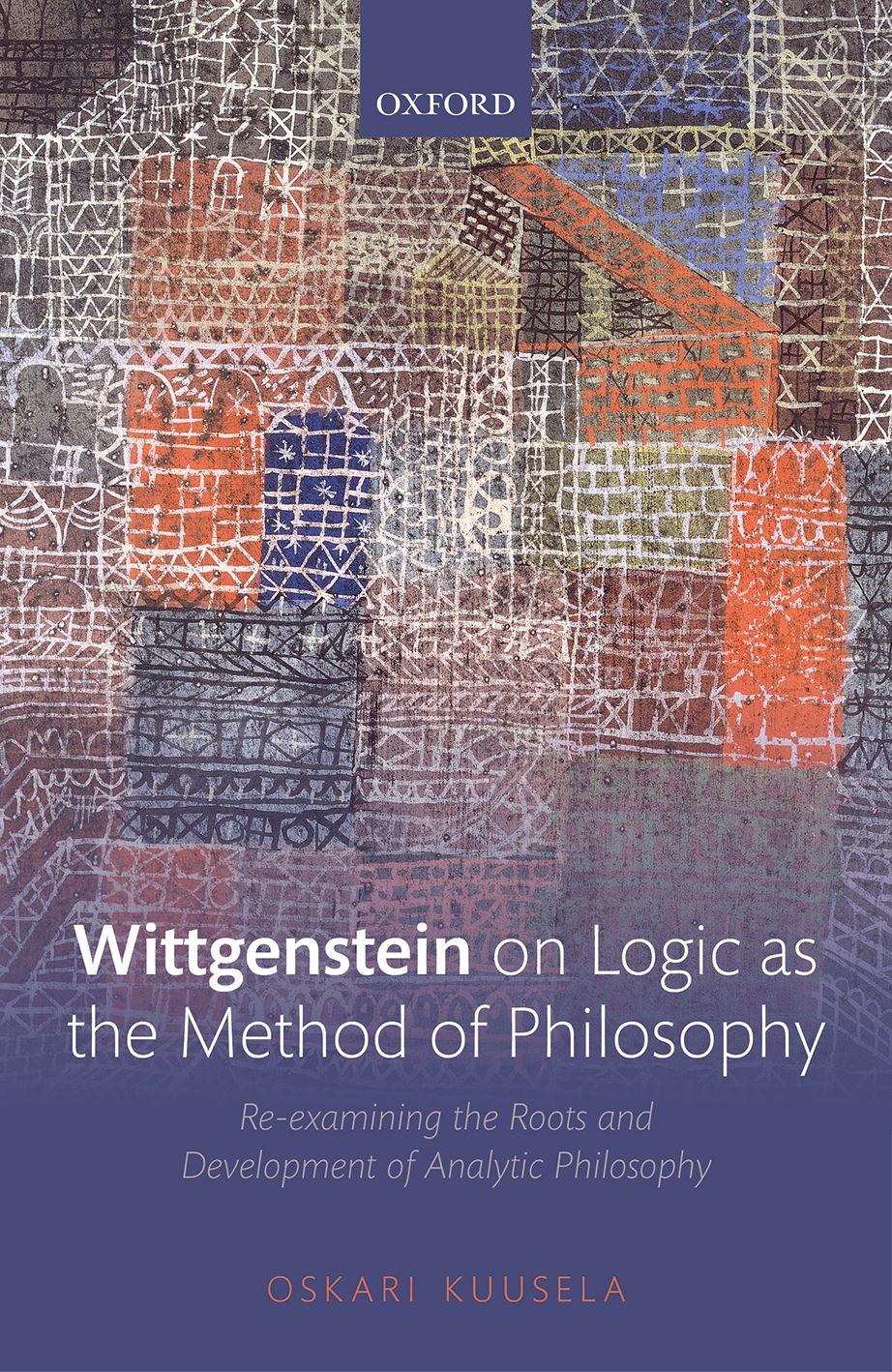WittgensteinonLogic astheMethodof
Re-examiningtheRootsand DevelopmentofAnalyticPhilosophy
OskariKuusela
GreatClarendonStreet,Oxford,OX26DP, UnitedKingdom
OxfordUniversityPressisadepartmentoftheUniversityofOxford. ItfurtherstheUniversity’sobjectiveofexcellenceinresearch,scholarship, andeducationbypublishingworldwide.Oxfordisaregisteredtrademarkof OxfordUniversityPressintheUKandincertainothercountries
©OskariKuusela2019
Themoralrightsoftheauthorhavebeenasserted
FirstEditionpublishedin2019
Impression:1
Allrightsreserved.Nopartofthispublicationmaybereproduced,storedin aretrievalsystem,ortransmitted,inanyformorbyanymeans,withoutthe priorpermissioninwritingofOxfordUniversityPress,orasexpresslypermitted bylaw,bylicenceorundertermsagreedwiththeappropriatereprographics rightsorganization.Enquiriesconcerningreproductionoutsidethescopeofthe aboveshouldbesenttotheRightsDepartment,OxfordUniversityPress,atthe addressabove
Youmustnotcirculatethisworkinanyotherform andyoumustimposethissameconditiononanyacquirer
PublishedintheUnitedStatesofAmericabyOxfordUniversityPress 198MadisonAvenue,NewYork,NY10016,UnitedStatesofAmerica
BritishLibraryCataloguinginPublicationData
Dataavailable
LibraryofCongressControlNumber:2018954253
ISBN978–0–19–882975–1
PrintedandboundinGreatBritainby ClaysLtd,ElcografS.p.A.
LinkstothirdpartywebsitesareprovidedbyOxfordingoodfaithand forinformationonly.Oxforddisclaimsanyresponsibilityforthematerials containedinanythirdpartywebsitereferencedinthiswork.
TothememoryofSalla-MarjaKuusela-Nymanand AleksiTimoteusTarzanKuusela
1.Frege’sandRussell’sNewLogic:ThePromiseofPhilosophical Progress13
1.1LogicastheMethodofPhilosophy:TheNotionofaLogicalLanguage 14
1.2TheObjectofInvestigationofLogic:Anti-Psychologism 22
1.3Frege,Russell,andthe Tractatus
1.4AnInterpretationalDisputeRelatingtothe Tractatus 37
2.TheTractatus’ PhilosophyofLogicandtheLogocentricPredicament45
2.1LogicasaUniversalScienceandtheLogocentricPredicament
2.2The Tractatus’ SolutiontotheLogocentricPredicament
2.2.1Wittgenstein’scritiqueofFrege’sandRussell’saxiomatic accountsoflogic 54
2.2.2Logictakescareofitself:Apriorityandlogicasaclarificatory discipline 59
2.2.3Logicalgeneralityandthefailureofthesesasexpressionsof logicalnecessity 65
2.3TruthorCorrectnessinLogicandthePossibilityofaMetaperspective 72
3.The Tractatus’ PhilosophyofLogicandCarnap77
3.1LogicasSyntax:Agreement,SomeDifferences,andCarnap’sDeparture
3.2TheWittgenstein–CarnapPlagiarismAffairRevisited
3.4WittgensteinandtheQuasi-SyntacticalModeofSpeech
3.5Quasi-SyntaxandTranslatability
3.6TheSaying–ShowingDistinctionandCarnap’sPhilosophyofLogic99
3.7ShowingandTolerance
4.IdealityandReality:BeyondApriorism,Empiricism, andConventionalism109
4.1Wittgenstein’sStartingPoint:LogicasIdealandPure
4.2IdealityandSublimation:TurningAwayfromConcreteCases
4.3TheNewRoleoftheIdealand ‘OurRealNeed’
4.4TurningtheExaminationAround:IdealizationinLogic
4.5BeyondtheTrichotomyofApriorism,Empiricism,and Conventionalism
4.6TheIntertwinednessoftheFactualandtheLogical
5.TheMethodofLanguage-GamesasaMethodofLogic142
5.1BeyondCalculiofPropositions:PluralityandtheAbsence ofFoundations
5.2TheNotionofaLanguage-Game
5.3Language-GamesastheContextfortheUseofWords
5.4TheNotionsofCompletenessandSystematicTheory
5.5TheStatusofLanguage-GamesasModelsforLanguageUse
5.6TheMethodofLanguage-GamesasanExtensionofLogic
6.Non-EmpiricistNaturalism:TheUsesofNaturalHistoryinLogic180
6.1Quasi-Ethnology:NaturalHistoricalPicturesandTruthinLogic
6.2WaysofUsingNaturalHistoryinLogic
6.3EmpiricalExplanationsvsLogicalDescriptions
6.4NaturalHistoryandPhilosophicalAnthropology
6.5ComplementaryUsesofModels:MultidimensionalLogicalDescriptions
6.6Multidimensionality,Completeness,andTruth
7.ResolvingtheDisputeBetweenIdealandOrdinary LanguageApproaches220
7.1TwoApproachestoPhilosophicalClarification
7.2Strawson’sCritiqueofCarnapandProblemswithStrawson’sCritique
7.3LogicalIdealization:DissolvingtheDispute
7.4ExplicationvsClarificationsasObjectsofComparison
Acknowledgements
ThisbookhastakenafewyearstocompleteandintheprocessIhaveaccumulatedmanydebtsofgratitude.Partsofitwereoriginallywrittenasarticleswhich areincorporatedhere,butinarestructured,expanded,andrevisedform.The firstarticleswerecompletedin2010,andin2011theUniversityofEastAnglia grantedmeasemester’sresearchleavetocompletesomeothers.Thebookitself wascompletedduringanothersimilarleavein2015.IammostgratefultoUEA forthisopportunitytodevotetimeformyresearch.Atamorepersonallevel IwouldliketothankAnssiKorhonenforhiscommentsonChapters1and2,and GildNirforcommentsonChapters1–3.Chapter3waspresentedattheSet Theory,ModelTheory,GeneralizedQuantifiersandFoundationsofMathematicsconference,UniversityofHelsinki(September2010),UEAPhilosophySociety (December2010),intheseminaroftheZukunftskolleg,UniversityofKonstanz (February2011),andattheContemporary Tractatus conference,AuburnUniversity,Alabama(March2011).Iwouldliketothanktheparticipantsatallthese eventsfortheirquestionsandcomments,aswellastheanonymousrefereesfor JournalforthePhilosophyoftheHistoryofAnalyticPhilosophy,whereanarticle similartoChapter3waspublishedunderthetitle ‘Carnapandthe Tractatus’ PhilosophyofLogic’,1(3),2012.ApaperthatconstitutesthebasisofChapter5 waspresentedatWittgenstein’sMethodandAestheticssymposiuminMarifjøra, Norway(May2011),andtheVisitingSpeakerSeminaratStirling(November 2011).Iwouldliketoexpressmygratitudetotheseaudiences.Additionally, IwanttothankJohnCollins,MarieMcGinn,EdMinar,RupertRead,Davide Rizza,andAngusRossfortheircommentsonthispiece.AngelaBreitenbach deservesaspecialthanksforcommentsandhelpwithtranslationsfrom Wittgenstein’ s Nachlass inconnectionwiththisarticle,subsequentlypublished as ‘TheMethodofLanguage-gamesasaMethodofLogic’ in Philosophical Topics,42(2),2014,andfortheonethatconstitutesthebasisofChapter4, ‘LogicandIdeality:Wittgenstein’sWaybeyondApriorism,Empiricismand ConventionalisminthePhilosophyofLogic’,publishedinNunoVenturinhaed., TheTextualGenesisofWittgenstein’sPhilosophicalInvestigations,Routledge, 2013.InconnectionwithChapter4IwouldalsoliketothankAlbertoEmiliani, RupertRead,DavideRizza,andNunoVenturinha,aswellasthosewhowere presentattheUniversityofSouthamptonVisitingSpeakersSeminar(October2012).
Onesectionfrommyarticle ‘GordonBaker,WittgensteinianPhilosophical
ConceptionsandPerspicuousRepresentation:ThePossibilityofMultidimensional LogicalDescriptions’ , NordicWittgensteinReview,3(2),2014isutilizedin Chapter6.Originally,thispaperwaspresentedinaconferenceinmemoryof GordonBakerinOxford(September2012).Apaperthatconstitutesthebasisof Chapter7waspresentedintheContemporarySignificanceofOrdinaryLanguage PhilosophyconferenceatÅboAkademiUniversity,Finland(May2013).Besides theparticipantsthereIamgratefultoJohnCollins,SilviaPanizza,andHenry Wagnerfortheirquestions,comments,andsuggestions.Igaveatalkrelatingto WittgensteinandlogicalidealizationatthePhilosophiesofPhilosophyconference,UniversityCollegeDublin(June2013),andwouldliketothanktheaudience there.Finally,naturalismandWittgenstein’sphilosophyoflogicwerethetopics ofmytalksattheWelshPhilosophicalSocietyAnnualMeeting,Gregynog (May2015),atUsingWittgensteininContemporaryPhilosophy,TheFifth SymposiumoftheInternationalLudwigWittgensteinSociety,Madrid(May 2015),andtheFacesofNecessityconference,UEA(June2015).Thequestions andcommentsIhavereceivedattheseeventshavehelpedmeinimportant ways,andIwouldliketoexpressmygratitudeforthem,andtothepeople involved.AtthebookmanuscriptstageIhavebenefitedfromcommentsby WolfgangKienzler,JakubMácha,GeniaSchönbaumsfeld,andJoachim Schulte,includingSchulte’ssuggestionsregardingtranslations.Iamextremely gratefulforthis,aswellasforcommentsbyanonymousreviewersatOxford UniversityPress.Finally,IwouldliketothankLucianoBazzocchifor alertingmetoexegeticalissuesrelatingtothe Tractatus’ numberingsystem andMartinPilchforhelpwithphilologicalmattersrelatingtoWittgenstein’ s pre-Tractarianwritings.Itisaprivilegetohaveenjoyedalltheseinteractions.
Fromwintertosummer2015,whenthe firstcompletedraftofthisbookwas completed,theprocessofwritingwasperfectlybalancedbytheopportunityto performandrecordmusicwithShaneO’Linsky,JosephQuinnandtheAmazing WorldofLivingThings,andothers.Thankstoallwhoplayedinthevarious outfits,tothosewhocontributedtothe firstDaysToalbum FracturedRooms (2016),andtoallfriendsontheNorwichmusicscene.Artisticmadnessisthebest waytokeepsane.
ThisbookisdedicatedtothememoryofmysisterSallawhodiedinsummer 2013,fartooearly.Insummer2016mybrotherAleksijoinedherinTuonela. Iamextendingthededicationwithsadnessandacontinuingsenseofloss.
TheepigraphattributedtoFregeatthestartofthisbookoriginallyappeared inG.Frege, ‘OntheScientificJustificationofaConceptualNotation’,in
T.W.Bynum(ed.), ConceptualNotationandRelatedArticles,1972,Oxford: ClarendonPress,andhasbeenreprintedbypermissionofOxfordUniversity Press.TheepigraphattributedtoWittgensteinhasbeenreproducedfrom L.Wittgenstein, PhilosophicalInvestigations,FourthEdition,trans.P.M.S. HackerandJoachimSchulte,2009,Oxford:Wiley.
‘Thus,letnoonedespisesymbols!Agreatdealdependsonchoosingthem properly.’
(Frege,SJCN,84)
‘Anunsuitabletypeofexpressionisasuremeansofremaininginastateof confusion.Itasitwerebarsthewayout.’
(Wittgenstein,PI§339)
Introduction
GottlobFregeandBertandRussellarewidelyregardedasthefoundersofanalytic philosophy.AlongerlistalsoincludesG.E.MooreandLudwigWittgenstein. ThisisnotbecauseanalyticphilosopherssubscribetoFrege’sandRussell’sviews aboutparticularphilosophicalmatters.Itishardtothinkofexamplesofsuch agreed-uponviews.Rather,Frege’sandRussell’sroleasfoundersisdue,before all,tocertainmethodologicalideaswhichtheyintroduced.Especiallyimportant inthisregardistheideathatphilosophicalprogresscouldbeachievedbymeans ofthemethodsofsymbolicormathematicallogictowhosedevelopmentboth contributedinimportantways.Thisbook,inessence,isanexaminationof Frege’sandRussell’smethodologicalandlogicalideasandtheirfurtherdevelopmentandtransformationbycertainotherphilosophers,especiallyLudwig Wittgenstein,butalsoRudolfCarnapandPeterStrawson.Itisinthissensea bookonmethodologyinanalyticphilosophy.Andalthoughthebookassumes theformoftheexaminationofthehistoryofanalyticphilosophy,especially theworkofWittgenstein,itisjustasmuch ormore aboutthefutureof analyticphilosophy.Theunderlyingquestionthatmotivatesthisbookiswhat analyticphilosophycouldbeorbecome,andwhetheritispossibleforitto redeemitsoriginalpromiseofprogress.Foritseemsfairtosaythatprogress hasbeenlessimpressivethanRussellpromisedandmorecontroversialthanhe mayhaveexpected(seeChapter1).Awaytodescribethisbookisthatitaimsto rewritepartsofthehistoryofanalyticphilosophyinordertouncoverpathstothe futurethatprevioushistorieshavecoveredup.
MymaingoalinwhatfollowsistoclarifyhowWittgensteindevelopsfurther, firstinhisso-calledearlyandespeciallylaterphilosophy,Frege’sandRussell’ s logicalandmethodologicalideas,transformingtheminawaythat,Ibelieve,can bejustifiablydescribedasasecondrevolutioninphilosophicalmethodologyand thephilosophyoflogic,followingFrege’sandRussell’ s firstrevolution.Inany case,Ihopethatthesubsequentchapterswillshowthisdescriptiontobeworth
consideringseriously.*¹Thisincludesreconceivingthestatusoflogicasanonempiricaldisciplineinsuchawaythatlogicbecomesabletotakeintoaccount empiricalfactsaboutthinkersorlanguageusersandtheirenvironment,andyet retainsitsnon-empiricalcharacter.AsIexplain,thisprovidesuswithanewkind ofnon-empiricistnaturalisminlogicandphilosophy,andWittgenstein’slater accountcannotbereducedtoanyofthealreadyextantaccountsofthestatusof logic,apriorism,conventionalismorempiricism.Relatingtothis,hearticulatesa newaccountoflogicalidealizationthatcanarguablysolvecertainimportant problemspertainingtotherigouroflogic,andtotheemploymentoflogical calculiforthepurposeofphilosophicalclarification.Theseproblemspertain especiallytotheclarificationoflocutionsoriginatinginnaturallanguageand philosophicalproblemsrelatingtowhateverwespeakaboutintheirterms,and theythreatenthecapacityoftheFregean–Russellianlogicalapproachtoachieve itsphilosophicalgoalsandthehoped-forprogress.ButWittgenstein’saccountof idealizationcanexplain,amongotherthings,howprecise,simple,andstaticrules canbeusedtoclarifyvague,complex,and fluidusesofnaturallanguage. Moreover,healsointroducesanumberofnewlogicalmethods,suchasthe methodofgrammaticalrules,themethodoflanguage-gamesandquasiethnology(asIwillcallthem),thatarecontinuouswithcalculus-basedlogical methodsbutextendlogicbeyondthem,makingnewareasofthoughtand languageuseaccessibletologicalexaminationandclarification.Nowcalculusbasedmethodscanberegardedasaspecialcaseoflogicalmethodology,with theirowncoreareasofapplication.InthissenseWittgenstein’saccountoflogic coversallthecasesthatFrege’sandRussell’saccountsoflogiccover,but additionallyitcanalsodealwithfurthercases,similarlytoanewKuhnian paradigmthatreplacesanoldone.Thus,Wittgenstein’srevolutionaffirmsor consolidatesFrege’sandRussell’srevolutioninaqualifiedform.Finally,on Wittgenstein’saccount,notonlyaretheremultiplelogicalmethodsfordifferent tasksofclarification,butdifferentlogicaldescriptionsandmethodscanbeused simultaneouslyinanon-exclusivewaytoclarifydifferentaspectsofcomplicated casessoastocreatemultidimensionallogicaldescriptions.
*InordertocaterforthedifferentinterestsofreadersIadoptthefollowingconvention: philosophicallysubstantialendnotesaremarkedwithastarindistinctionfromnotesrelatingto exegeticalquestionsandlessimportantmatters.Asitisthemaintaskofthisbooktodevelopanovel accountofWittgenstein ’sphilosophyoflogic,therelationsbetweentheproposedinterpretationand otherextantonesaremostlydiscussedinnotes.Icommentonotherreadingswhenthisisuseful,for example,inordertoexplainhowtheproposedinterpretationsolvesproblemsthatariseforothers. Evidently,thisdivisionbetweenexegeticalandotherphilosophicalquestionscannotbesharpsince philosophicalinterpretationisaphilosophicalundertaking.ButIhopethishelpsreaderswith differentintereststo findwhatmostintereststheminthebook.
DespiteawealthofliteratureonWittgenstein,itseemsthathislaterphilosophyoflogichasremainedlargelyunrecognizedforwhatitis.Contraryto Wittgenstein’sowntestimony(seebelow),hislaterphilosophyisusuallynot readasa positive contributiontothephilosophyoflogic.²Morecommonly,his laterphilosophyisseenasanegativecontribution,withWittgensteinarguing againsttheapproachesofFrege,Russell,andhisownearly Tractatus,and generallyagainsttheemploymentofcalculus-basedlogicalmethods.Intheir placehethenpromotestheviewthatweshouldsticktotheemploymentand descriptionofeverydayornaturallanguageinphilosophy,perhapsforthe purposeofsomekindofphilosophicaltherapy.However,ifWittgenstein’slater workistobeseenasapositivecontributiontologic,anexplanationisrequired forwhatsuchdescriptionsofeverydaylanguagehavetodowithlogicandlogical clarification,giventhatthemultiplicityofthelinguisticformsofnaturallanguage isanempiricalphenomenon,whilelogic isnotanempiricaldiscipline.Whydoes Wittgenstein’sphilosophythusconstruednotbecomeempiricalundertaking,perhapssomedubiousformoflinguisticarmchairanthropology?Moreover,giventhe complex,vague,and fluidcharacterofnaturallanguage,whydoesWittgenstein’ s allegedrejectionofcalculus-basedmethodsnotamounttoabandoningtheidealsof simplicityandexactnessoflogic,andthereforeabandoninglogic?³
ThereisanotherbroadlyKantianvariantofreadingthelaterWittgensteinthat hasaclaimtoavoidingtheproblemwitharmchairempiricism.Accordingtothis lineofinterpretation,Wittgenstein’sso-calledgrammaticalstatementsarticulate conditionsofintelligibilityfortheemploymentofconcepts,clarifyingwhatis necessarilyassumedintheiruseandwhattheirpossibleusesare.Thusconstrued, Wittgenstein’sdescriptionsoflanguagearenotempirical,buthemightinsteadbe characterizedasengagedinphilosophicalanthropologywhoseaimistoclarify theessential(ratherthanmerelyaccidental)featuresofthephenomenaofhuman languageuse.AlthoughWittgensteiniangrammarcannowbeunderstoodasheir tothelogicofFrege,Russell,andthe Tractatus inthatgrammaticalinvestigation clarifiesnon-empiricalnecessitiesandpossibilities,itremainsunclearhowthis wouldcountasapositivecontributiontologic,insteadofWittgensteinmoving ontoadifferent,relatedinvestigation.For,onthisinterpretation,theconnection ofgrammaticalinvestigationwithFregean–Russellian–Tractarianlogicissevered throughWittgenstein’srejectionofcalculus-basedmethods.AnadditionalproblemwhichIhavediscussedelsewhereisthatKantianreadingsrunintodifficulties inaccountingforWittgenstein’sclaimtoabandonphilosophicaltheses(seePI §§109,128).Readinthisway,grammaticalstatementsarguablyconstitute philosophicalthesesinthesenseofclaimsaboutwhatisnecessaryandpossible, andthebroadlyKantianinterpretationisnotexegeticallyorphilosophically satisfactoryinthissenseeither(seeKuusela2008b).⁴
Iintendtoshowthattheconception,accordingtowhichthelater Wittgenstein’scontributiontologicisatbestnegative,mustbereconceived. WittgensteinremainsaphilosopheroflogicandasupporteroftheFregean–Russellianconceptionofphilosophyasalogicalinvestigationthroughouthis career,withlaterWittgensteinradicallyrevisingthe Tractatus’ philosophyof logic.RelatingtoWittgensteinasaphilosopheroflogic,thefollowingsimple historicalhypothesisunderpinstheproposedinterpretation.Havingdiscovered Russell’sworkthroughhisinterestinmathematicsanditsfoundations,WittgensteinbecameakeensupporterofRussell’sandFrege’slogical-philosophical approaches.ButalthoughWittgensteinwholeheartedlyacceptedthegeneral thrustoftheirapproaches,hesoonfounditinneedofre-articulationonvarious pointsofdetail.Thisworkofclarificationhesoughttocarryoutinthe Tractatus, whichseekstoresolveanumberofproblemsrelatingtoFrege’sandRussell’ s accountsoflogic,forexample,withregardtoquestionsconcerningthestatusof logicallaws,andthenatureofthedisciplineoflogic,logicalgenerality,logical constants,thejustificationofinference,thebindingnessoflogic,andsoon(see Chapter2).Afterhisreturntophilosophyin1929,however,Wittgensteincameto problematizeevenmoreassumptionsoftheFregean–Russellianapproach,for example,theviewthatthefoundationorstartingpointoflogicshouldbeageneral accountofthenatureofthoughtorproposition,thatthereissomethinglike the universallogic,andthatthenon-empiricalcharacteroflogiccanbeexplainedin termsofanaccountofthoughtorpropositionasabstractentities,ratherthantheir beingessentially(notmerelyaccidentally)partofhumanlife.Inresponse,he soughttodevelopfurthertheFregean–Russellianapproachinrelevantrespects whichalsoledhimtointroduceotherlogicalmethodsthatdonotenvisage languageasacalculus,andextendlogicbeyondcalculus-basedmethods.Onthe proposedinterpretation,anaspirationtofurtherdeveloptheFregean–Russellian philosophicalapproachthereforeinformsWittgenstein’sworknotonlyinhis earlyperiod,butalsoinhislaterperiod.Letmesubstantiatethisclaim.
Ifnotthe first,Wittgensteinwasinanycaseoneoftheearliestfollowersand developersoftheFregean–Russellianapproach.Accordingly,heremarksinthe Prefacetothe Tractatus: ‘HowfarmyeffortsagreewiththoseofotherphilosophersIwillnotdecide.[ ... ]Iwillonlymentionthattothegreatworksof FregeandthewritingsofmyfriendBertrandRussellIoweinlargemeasurethe stimulationofmythoughts’ (TLP,Preface).InhisbookWittgensteinthen assumesandbuildsontheRussellianconceptionofphilosophicalproblems aslogicalones,tobesolvedbymeansoflogicalmethods.⁵*Onmorethanone occasionRussell,too,acknowledgedthevalueofWittgenstein’searlyworkon logic,writingearlyoninaletterin1912that ‘[ ... ]Ifeelhewilldothework
Ishoulddo,anddoitbetter.HestartsfreshatapointwhichIonlyreachedwhen myintellectualspringwasnearlyexhausted’ (RusselltoOttolineMorrell,1.6.12, quotedinMcGuinness1988,103).Beyondsuchprivateremarks,Russellalso characterizedWittgenstein’sworkasinvolving ‘vitallyimportantdiscoveries’ , andasWittgensteinprogressed,acknowledgeditsinfluenceonhim(OKEW,9). Ofhis PhilosophyofLogicalAtomism Russellsaysthatitis ‘[ ]verylargely concernedwithexplainingcertainideaswhichIlearntfrommyfriendand formerpupilLudwigWittgenstein’ (PLA,1;cf.12–13,34,58,139).⁶
ButalthoughRussell’sverypositiveperceptionoftheearlyWittgensteinseems tohaveneverchanged,hewasnotabletoappreciateWittgenstein’slaterwork fromtheearly/mid1930sonwards.Russellwritesaboutthis:
IhavenotfoundinWittgenstein’ s PhilosophicalInvestigations anythingthatseemedto meinterestingandIdonotunderstandwhyawholeschool findsimportantwisdominits pages.[ ]TheearlierWittgenstein,whomIknewintimately,wasamanaddictedto passionatelyintensethinking,profoundlyawareofdifficultproblemsofwhichI,likehim, felttheimportance,andpossessed(orsoatleastIthought)truephilosophicalgenius.The laterWittgenstein,onthecontrary,seemstohavegrowntiredofseriousthinkingand inventedadoctrinethatwouldmakesuchanactivityunnecessary.Idonotforone momentbelievethatthedoctrinewhichhastheselazyconsequencesistrue.[ ]ifitis true,philosophyis,atbest,aslighthelptolexicographers,andatworst,anidletea-table amusement.(MPD,216–17)
Accordingly,RussellexpressedhissupportforErnstGellner’spolemicattackon ordinarylanguagephilosophywithwhichWittgensteinwasassociated,andwrote himselfrathernegativelyabouttheordinarylanguageapproachasacult.⁷ As IwillargueinChapter7,however,ratherthantakingthesideofordinary languagephilosophy,Wittgenstein’slaterphilosophyisbetterunderstoodas incorporatingelementspresentinboththeso-calledideallanguagephilosophy andordinarylanguagephilosophy.Insodoing,itarguablyenablesustoresolve thedisputebetweenthetwoschools.Moreover, pace Russell,Wittgenstein’slater workcanstillbedescribedasdeeplyRussellianinthesensethathenevergaveup theconceptionofphilosophicalproblemsaslogical,toberesolvedbymeansof logicalinvestigation.Forexample,heremarksin1948: ‘Merelyrecognizingthe philosophicalproblemasalogicaloneisprogress.Theproperattitudeandthe methodaccompanyit’ (MS137,104b/LWI,§256).
InthesecircumstancesaplausibleexplanationforRussell’sinabilityto appreciateWittgenstein’slaterworkisthatRussellcouldnolongerrecognizeit aslogic.(ThecriticalquotesuggeststhatheregardedWittgensteinashaving abandonedlogicforanempiricalinvestigation,giventhatlexicographyisan empiricaldiscipline.Similarly,thepeculiaritiesoflanguagediscussedastea-table
amusementwouldpresumablybeempiricalphenomena.)Infailingtorecognize Wittgenstein’sworkaslogicRussellisnotalone,ofcourse.Themethodswhich Wittgensteinintroducesinhis PhilosophicalInvestigations havegenerallynot beenperceivedasmethodsoflogicthatwouldexhibitanintimatecontinuitywith Wittgenstein’searlyapproachtophilosophyaslogicalclarificationandwiththe workofFregeandRussell althoughcontinuityintheintendedsensedoesnot excludeveryradicalrethinkingofthenatureoflogicandphilosophical methodology.⁸
ThisperceptionofWittgensteinisincertainwaysunderstandable.Russell alreadyworriedabouttheyoungWittgenstein apparentlycorrectly,giventhe difficultiesanddisputesrelatingtothereceptionofthe Tractatus that ‘Iam seriouslyafraidthatnoonewillseethepointofanythingthathewritesbecause hewon’trecommenditbyargumentsaddressedtoadifferentpointofview’ (RusselltoOttolineMorell28.5.12;quotedinMcGuinness1988,104).Albeit stylisticallyquitedifferentfromthe Tractatus,the Investigations likewisetriesto getthereaderstothinkforthemselves,ratherthanengaginginextensive explanations.Thus,whileWittgensteinwritesinthePrefacetothe Tractatus thatitisnotatextbook,and ‘[ ... ]willperhapsonlybeunderstoodbythosewho havethemselvesalreadythoughtthethoughtsexpressedinit orsimilar thoughts’ (TLP,Preface),the Investigations forewarns: ‘Ishouldnotlikemy writingtospareotherpeopleofthetroubleofthinking.Butifpossibleto stimulatesomeonetothoughtsoftheirown’ (PI,Preface).Indeed,Wittgenstein himselftoorealizedthatitmightbedifficulttorecognizehislaterworkaslogic. Discussingthedistinctionbetweenthenotionofexperiencingmeaningandthe conceptofmeaning,heremarksinamanuscriptfrom1947–8: ‘Strangeasitmay sound,inalltheseinvestigationsIamdoinglogic.EvenifIdoitclumsily&the logicalsignificanceofwhatIsayisdifficulttomakeout’ (MS136,72a).⁹
ThatWittgensteinlaterdescribedhimselfasengagedinagrammaticalrather thanalogicalinvestigationhasundoubtedlycontributedtotheperceptionthathe isnotdoinglogic(seePI§90).However,onmanyoccasionsWittgensteinuses theterms ‘ grammar ’ and ‘logic’ andtheircognatesinterchangeably,andhenever, tomyknowledge,seekstoexplicitlydistinguishgrammarfromlogic.(Although interchangeabilityonmanyoccasionsdoesnotindicatesynonymy,itdoes indicateacloserelationship.)Thiscloserelationbetweenlogicandgrammaris particularlyevidentintheyearsafterhisreturntophilosophy(from1929tothe early1930s),whenWittgensteinstartstotalkincreasinglyaboutgrammarrather thanlogicorsyntax,whilecontinuingtoemploy ‘ grammar ’ as ‘logic’ earlier. Thus,forexample,accordingtohim,grammarspellsoutlogicaldistinctions,and grammaticalrulesdeterminetheroleofvariables(MS108,153).Grammarshows
whatislogicallypossible(MS140,8/TS211,244/PG,45;BB,56),andclarifies whatlogicallyfollowsfromasentence(MS109,15).Logicalproblemsand questionsaresaidtobegrammaticalones(MS109,224/TS211,398;Z§590), andlogicalanalysisischaracterizedastheclarificationofgrammar(MS108,88/ TS209,1/TS213,417/PR,51).Wittgensteinsumsuphisviewatthistime: ‘[ ] everythingthatisbusinessinlogicmustbesaidingrammar’ (MS109,122). However,hecontinuestouse ‘ grammar ’ , ‘logic’ andtheircognates(nearly) interchangeablylatertoo,andthereisnoevidenceforachangeofmindregarding theirrelation(seeMS138,17b;MS157a,54v;MS167,26r;TS233a,38;TS245, 310/RPPI§1050).Theuseof ‘logic’ isparticularlyprevalentin OnCertainty, basedonexcerptsfromWittgenstein’slastmanuscripts,wherehe,forexample, connectshisnotionofalanguage-gamewithlogicinthefollowingway: ‘[ ]to logicbelongseverythingdescriptiveofalanguage-game’ (MS174,18/OC§56; cf.§§82,628).Wittgensteinthereforedoesnotseemtodrawanydramatic distinctionbetweenlogicandgrammarwhichwouldbeareasontopostulatea breakbetweenlogicandgrammar,asheemploysthelatternotion.¹⁰
Still,itisafactthatthelaterWittgensteinmostlyusestheterm ‘ grammar ’ insteadof ‘logic’,andthisoughttobeexplained.Intheabsenceofanyknown commentsonthisissuebyWittgenstein,Iproposethefollowingexplanation, basedontheinterpretationofWittgensteindevelopedinthisbookwhich, however,willnotbeinplaceuntilChapter6.Onthisreading,Wittgenstein’ s useoftheword ‘ grammar ’ reflectshislaternon-intellectualistconceptionof language,wherebylanguageisseenasintertwinedwithactionsandhuman formsoflife,andassomethingthatemergesfromactinganddoingofembodied beings,ratherthanhavingitsbasisindisembodiedreason.Whiletheword ‘ grammar ’ (like ‘syntax’)continuestosuggestaconcernwithlanguage,with whoseclarificationWittgensteinregardslogicasconcernedthroughouthis career, ‘ grammar ’ lackstheintimateconnectionof ‘logic’ withreason,thatis, λόγος.Accordingly, ‘ grammar ’ canbenaturallyassociatedwithWittgenstein’ s latermethods,suchasthemethodoflanguage-games(Chapter5)andhisnatural historicalorquasi-ethnologicalmethods(Chapter6),characteristicofwhichis thattheyexaminethefunctionofwordsinthecontextofactionswithwhich languageuseisintertwined.However,becausethenotionofalanguage-game coversthatofacalculustoo(seesection5.1)and,astheprecedingquotestestify, Wittgensteinregardsanythingthatbelongstologicasbelongingtogrammar,we maysaythat ‘ grammar ’ coverseverythingthatispartoflogic.Butitisalso possibletounderstand ‘logic’ asanarrowerterm,inwhichcase ‘ grammar ’ covers whateverfallsunderWittgenstein’sextensionoflogicbeyondFrege’sandRussell’ s calculus-basedlogicalmethods.
Inanycase,thefactthatWittgenstein’slaterapproachdiffersfromhisearly one,orthoseofFregeandRussell,isnotyetareasonnottoregardhisworkas logic.ConstruedasanobjectiontoWittgenstein,thisislikecomplainingagainst Fregethathislogicisnotlogic,becauseitisnotsimilarenoughtothatof Aristotle.Whatisatstakeistheidentityofthedisciplineoflogicoroflogicas abranchofinvestigation whichcertainlywasanexplicitconcernforWittgenstein (seePI§§89,108).Buttheidentityoflogiccannotbedefinedbyreferencetoany particularauthorities,suchasAristotle,FregeorRussell,andtherevolutionin logicbroughtaboutbythedevelopmentofsymboliclogicdoesnotexcludethe possibilityoffurtherrevolutions.WhatmattersiswhetherWittgenstein’ slater approachcananswertothekindsofneedsinresponsetowhich,forexample, Aristotle,Frege,andRusselldevelopedtheirlogics.Ifitcandothis,thisisa reasontoregarditasacontributiontologic irrespectiveofwhetherwecallit ‘logic’ , ‘ grammar ’ orsomethingelse.Thisquestionnowemergesasmerely terminological.
AsIaimtoshow,thenewmethodsthatWittgensteinintroducesinhislater workcanbeunderstoodasmethodsoflogicbyrelevantcriteria.Asnoted,these methodsextendlogicbeyondlogicalcalculisoastobettersuittheclarificationof thehighlycomplexand fluctuatingusesofnaturallanguage.Inthisregarditis thenimportantthat,whenitcomestotheanalysisofnaturallanguagesand resolvingphilosophicalproblemsconnectedwiththeirconceptsorwhateveris spokenaboutintheirterms,itisatbestcontroversialwhetherthekindof piecemealbutsteadyprogresshasbeenachievedthatRussellbelievedlogical methodswouldmakepossible(RussellOKEW,112–13;quotedinChapter1). Wittgensteincommentsonrelevantissuesin1946inconnectionwithadiscussionofMoore’sparadox,i.e.statementsofthetype ‘Thingsaresoandso,butIdo notbelieveit’.Fromthepointofviewoflogicasusuallyunderstood,ifweassume thatcontradictionshavetheform ‘pandnot-p’,suchastatementisnota contradiction.Butthatlogiccannotrecognizesuchastatementasacontradiction,Wittgensteinlaments,revealsitsinabilitytohandlesomethingitoughttobe abletohandle.Hecomments: ‘Thisshowsseriousgapsinlogic.Itindicates whatsomanythingsindicate thatwhatweusuallycall ‘logic’ isonlyapplicable toatinypartofthegamewithlanguage.Thisisalsowhylogicisasuninteresting as,judgingbyitsappearance,itshouldbeinteresting’ (MS132,119–20).The problemhere,toanticipate,isthatlogicisstilltoomuchhungupongrammatical form,failingtopaysufficientattentiontotheuseofexpressions,whereby Wittgenstein’slaterstrugglestoliberatelogicfromthedictatesofgrammatical formbyfocusingonusecanbeseenasdirectlycontinuouswiththoseofFrege andRussell.
Wittgenstein’slaterworkcanbecharacterizedasaimingto fillinthementionedkindofgapsinlogic.Thisrequirestheintroductionofnewmethodsthat canhandlethecomplexitiesoflanguagebetterthanlogicalcalculiaccordingto preciseand fixedrulesseemabletodo.Aboutthishealsoremarks: ‘Languageis muchmorecomplexthanlogiciansandtheauthoroftheTract.Log.Phil.have imagined’ (MS152,47;cf.PI§23;MS134,120/RPPI§920).And: ‘Onecouldsay thatwearemerelytryingtocometoknowword-useinallitscomplexity;inorder avoidfallingintothoseerrorsthatarisefromourconceivingtheword-useas moreprimitivethanitis’ (MS157a,33v–34r).Inthisregarditisalsonoteworthy that,asopposedtothe Tractatus’ programmaticcharacterizationsofhowa symbolicnotationoraconcept-scriptenablesustodealwithphilosophical problems(TLP3.323–3.24,6.53),Wittgensteinintroduceshislatermethodsby applyingthemtorealphilosophicalproblems.Hisdiscussionofproblemsrelatingto,forexample,meaning,rule-followingorprivatelanguagearenotillustrationsbymeansofmeretoy-examples.Theymeritseriousconsiderationas examplesoftheapplicationofhislogicalmethods.Inthissense,hislaterwork lackstheprogrammaticcharacterofthe Tractatus.
However,fromthepointofviewoftheproposedinterpretationofWittgenstein’ s laterworkasan extension ofFregean–Russellianlogic,itisimportantthathis laterphilosophyoflogicdoesnotcontradictorgenerallyexcludetheemploymentoflogicalcalculiforthepurposeoflogical-philosophicalclarification. Whereverlogicalcalculiaresuccessfullyemployed,thereisnocomplaintagainst them,andthecomparisonbetweenlanguagesandcalculi IbelieveWittgenstein wouldagree remainsimpressive(cf.PI§§81,104).AsIexplaininChapter4, thelaterWittgenstein’saccountoftheemploymentoflogicalcalculiinlogicalphilosophicalclarificationrestsonhislateraccountofthestatusoflogicwhich alsoexplainsthepossibilityofidealizationinlogicandphilosophy.Thisaccount ofthestatusoflogicmustthereforeberegardedasacrucialcomponentof Wittgenstein’slaterphilosophyoflogicandlogical-philosophicalmethodology.
Tooutlinebrieflythediscussioninthefollowingchapters,IbegininChapter1 withadiscussionofFrege’sandRussell’saccountsoflogicandtheirideasrelating totheapplicationoflogicalmethodstophilosophicalproblems.Thisisintended asbackgroundforthediscussionsthatfollow,andattheendofthechapter (section1.3)InotevariousconnectionsbetweentheapproachesofFregeand Russellandthe Tractatus.Chapter2continuesthisdiscussionbyoutlining the Tractatus’ critiqueofFregeandRussell,andthewaysinwhichtheearly Wittgensteinseekstoresolveproblemswiththeirphilosophiesoflogic.Key issuesrelatetothenatureoflogicalinvestigation,logicalgenerality,howto explaintheaprioristatusoflogic,thejustificationoflogicandlogicalinferences,
andthebindingnessoflogic.Accordingly,thechapterseekstoshowthat Wittgenstein’srejectionofthepossibilityofstatementsaboutlogic(including theTractariansentences)isnotaconsequenceofthepicturetheory,contraryto whattraditionalmetaphysicalinterpretationsofthe Tractatus haveheld.Rather thanarguingaboutlogicdogmaticallyfromthepointofviewofatheorytowhich FregeandRusselldonotsubscribe,Wittgenstein’scorecriticismsoftheirphilosophiesoflogicrelatetotensionswithinFrege’sandRussell’saccounts.
Afurtherconsequenceofthisreadingisthatthereisnoparadoxofnonsensical thesesinthe Tractatus,andthatnoparadoxicallynonsensicalthesesareneeded toexplainthe Tractatus’ positivecontributiontologic.Thus,Ialsoproposea solutiontothedisputebetweentheso-calledmetaphysicalandresolutereadings ofthe Tractatus thathasexercisedWittgenstein’sreadersforthelasttwentyorso years,althoughtheinterestoftheproposed Tractatus interpretationdoesnot dependonthisdispute.Relatedly,Ialsoargueagainstawell-establishedtradition inthehistoriographyoflogicthatWittgenstein’searlyviewdoes not excludea metaperspectiveonlogic,despitehissubscribingtoauniversalistconceptionof logicsimilarlytoFregeandRussell.Thisisanimportantkeytounderstanding the Tractatus’ philosophyoflogic,andhisconceptionoflogicasaclarificatory discipline.Chapter3thenexaminestherelationbetweenthe Tractatus’ philosophyoflogicandCarnap’saccountoflogicin TheLogicalSyntaxofLanguage, arguingthat,contrarytoawidelyacceptedaccount,Carnapdoesnotovercome theTractarianphilosophyoflogicinthesenseheclaimstodo.Rather,his approachisbetterunderstoodasafurtherdevelopmentofthe Tractatus’ philosophyoflogic,withtheTractariandistinctionbetweensayingandshowing anticipatingCarnap’sdistinctionbetweenobject-andsyntax-language.The functionofthesentencesofthe Tractatus,explainedinCarnapianterms,isto introduce,byusingthematerialmodeofspeech,logicalconceptsandprinciples constitutiveofalogicallanguagethatenablesustophilosophizeintheformal mode.Thisputsusinapositiontorecognizethestatementsofthe Tractatus at thesametimeasnonsensicalandpositivelycontributingtologic.Wittgenstein’ s statementsmerelyhavetheappearanceofmetaphysicaltheses,butarereallyused foradifferentpurpose.Thischapterisimportantforthebookasawholeinthatit bringstoviewcertaineasilyhiddencontinuitiesbetweenWittgenstein’searlyand laterphilosophies.
TurningtothelaterWittgenstein,inChapter4IexplainhowWittgenstein reconceivesandtransformsthe Tractatus’ philosophyoflogic.HereIintroduceWittgenstein’ slateraccountofthestatusoflogicandlogicalidealization whichoffersanalternativetoapriorism,conventionalism,andempiricism.An importantissueinthisregardisWittgenstein ’ srejectionofso-calledapriori
statementsasknowledgeclaims,andhisexplanationoflogicalgeneralityand theuniversalityofphilosophicalstatementsintermsoftheirnon-temporal use.Thismakesitunnecessarytopostulateanyapriorientitiesandstructures astheobjectoflogicalorphilosophicalstatements.Onthisbasis,Chapter5 providesaninterpretationofWittgenstein’ smethodoflanguage-games,elucidatingbothitscontinuityanddiscontinuitywithRussell ’ sandWittgenstein’ s earlylogic.Thechapteralsoexplainshowthismethodextendsthescopeof logicbeyondcalculus-basedmethods.Similarly,Chapter6continuesonthe themeofWittgenstein ’ sextensionoflogic,turningtotheissueofhownatural historicalconsiderationscanberelevanttologic.IprovidehereaninterpretationofWittgenstein’ snaturalhistoricalorquasi-ethnologicalmethodsas methodsoflogic,explaininghowhisemploymentofsuchmethodsavoids fallingintoempiricism,andclarifyhowexceptionlesslogicalnecessitycanbe accountedforfromthispointofview.Wittgenstein ’ soutlookinthisregard canbedescribedasnon-empiricistnaturalism,anditis,forallIknow, unprecedented,exceptthatsomeofitsemploymentscanbecomparedwith Nietzsche’ sgenealogicalmethodsuitablyinterpreted.ThischapteralsooutlinesthepossibilityofwhatIcall ‘ multidimensionallogicaldescriptions ’ ,based onWittgenstein ’ slateraccountofthestatusoflogic.Finally,Chapter7argues thatWittgenstein’ slaterphilosophyoflogicandphilosophicalmethodology canbeusedtodissolvethelongstanding,unresolveddisputebetweenthesocalledideallanguageandordinarylanguageschoolsinanalyticphilosophy.As Iproposetoresolvethisdispute,neithersideemergesasthewinner,andboth approachescanlearnfromtheother.InthelastsectionofChapter7Idiscuss someadvantagesofWittgensteinianclarifi catoryconceptsoverCarnapian explications.AsIhopeallthisshows,Wittgenstein’ sphilosophyoffersan exceptionallyrichsourceofstimuliforthinkingaboutlogicandphilosophical methodology.
Onthewholethesediscussionsareintendedtooutlineanalternativeto Russellianphilosophicallogic,characterizedbyitsemploymentoflogicalcalculi asinstrumentsoflogicalclarification,thatextendslogicalmethodsbeyond calculus-basedmethods.Consequently,logicisnolongercommittedtofunctionargumentstructurescharacteristicofmathematicalorsymboliclogic,andclarifying theusesoflanguagenolongerrequiresexplainingthemintheseterms.Withthe introductionofthesenewmethodslogic’scapacityforphilosophicalclarificationis arguablysignificantlyincreased.Thisisimportantespeciallyinphilosophicalas opposedtometamathematicalcontexts,andwithrespecttothetaskofclarifyingthe usesofnaturallanguageandconceptsoriginatingtherein.(Themostcentral conceptsofphilosophicalattentionhavethisorigin,forinstance,truth,goodness,
freedom,thought,language,meaning,andsoon.)Thus,byelucidatingWittgenstein’searlyandlaterphilosophiesoflogic,Iaimtoputforwardanaccountoflogic asamethodforphilosophythatgoesbeyondhowFregeandRussellproposedto employlogicassuchamethod.Thisishowmyproposedrewritingofpartsofthe historyofanalyticphilosophyisintendedtoopenupnewpathsandtouncover covered-uppathsforthefurtherdevelopmentofanalyticphilosophy.¹¹
Finally,anoteontheexegeticalmethod:theexegeticalmethodusedinthis bookinvolvestheemploymentofWittgenstein’snotebooks,manuscripts,typescripts,andlecturenotesasanaidintheinterpretationofhisremarksinthe Tractatus andthe Investigations.Wittgenstein’ s Nachlass thusplaysasupportive, albeitveryimportant,roleinthetaskofinterpretation.Butultimatelythe Nachlass isonlyanaidinreadingthetwomoreauthoritativeworksthat Wittgensteinhimselfcompletedoralmostcompleted.Tobesure,the Nachlass cannotautomaticallysolveanyproblemsofinterpretingthesebooks,andcaution mustbeexercisedbypayingattentiontothecontextofremarkstoensurethe legitimacyoftheiremploymentforrelevantpurposes.Nevertheless,different variantsandformulationsofthesameorrelatedremarkscanbeextremely helpfulforthetaskofinterpretation.(Fordiscussionoftheprinciplesofthe methodofinterpretation,seealsoKuusela2008a,13–15.)Wittgensteinhimself seemstoalsohaveacknowledgedthelegitimacyofsuchanemploymentofhis literaryremains: ‘Ibelieveitmightinterestaphilosopher,onewhocanthink himself,toreadmynotes.ForevenifIhavehitthemarkonlyrarely,hewould recognizewhattargetsIhadbeenceaselesslyaimingat’ (MS175,64v/OC§387). However,asthisremarkalsoimplies,theresponsibilityremainswiththe philosopher-readertothink,andthisresponsibilityisnottransferrable.As regardsthemethodofinterpretingthe Tractatus,attentionmustadditionally bepaidtothecontextandrelationshipsbetweenitsremarks,asindicatedby Wittgenstein’snumberingsystem,designedtoindicatethe ‘logicalweight’ ofhis remarks(seefootnoteonthe firstpageofTLP).Althoughthis,onceagain,does notautomaticallysolveanyinterpretationaldisputes,usingremarksfromthe bookwithoutpayingdueconsiderationtotheirnumberingandarrangement risksmisinterpretation.¹²
Frege’sandRussell’sNewLogic
ThePromiseofPhilosophicalProgress
ThischapteroutlinescertainkeyinsightsandfeaturesofFrege’sandRussell’ s accountsoflogicandtheirapproachestophilosophy.Suchanoutlineisneeded asbackgroundforsubsequentdiscussionsofWittgenstein’searlyandlater philosophiesoflogicandphilosophicalmethodology.Weneedit,thatistosay, inordertoseehowmuchWittgensteininheritsandretainsfromFregeand Russell,andhowheseekstoresolveproblemswiththeirphilosophiesoflogicand philosophicalapproaches, firstinthe Tractatus andtheninhislaterphilosophy. InthischapterIwillthereforefocusonaspectsofFrege’sandRussell’saccounts oflogicandphilosophicalmethodologythataremostrelevantfromthepointof viewofthelaterdiscussions.Thetwomostimportantpointsinthisregardare: 1)thatphilosophicalproblemscanberesolvedbymeansoflogicalmethods,and 2)thatthedevelopmentoflogicalmethodsshouldtaketheformofdevelopinga logicallyperspicuouslanguage,asymbolicnotationintermsofwhichtheanalysesoflogicallylessperspicuousformsofthoughtandlanguagecanbecarried out.OnboththesepointsFregeandRussellagree,andtothisextentitispossible tospeakofaFregean–Russellianapproach,asifitconstitutedoneunified approach.Accordingly,inthe PrinciplesofMathematics Russelldescribesthe relationbetweenhisviewsandthoseofFregebysaying: ‘[ ... ]thepointsof disagreementareveryfewandslightcomparedtothoseofagreement’ (PoM, 509).Byspeakingofagreement,Idonot,ofcourse,meanthatFregeandRussell wouldagreeonallrelevantpoints,andIwillpointoutdifferencestoo.For example,whileRussellmaintains atleastintheperiodunderconsideration, roughly1903–20 thatphilosophicalproblemscanonlybesolvedbymeansof logicalmethods,Fregeseemsmorecautiousinthisregard,sayingonlythatsuch methodsareusefulandimportantforphilosophy.
IbeginbyoutliningthelogicalmethodologiesofFregeandRussell,and explainingtheirphilosophicalsignificanceastheyperceivedit.
1.1LogicastheMethodofPhilosophy: TheNotionofaLogicalLanguage
InhisLowellLectures,deliveredin1914,Russellspeaksaboutthephilosophical significanceofthenewmathematicallogictowhosedevelopmentheandFrege, amongothers,hadimportantlycontributed.AccordingtoRussell,thenewlogic has ‘[ ]introducedthesamekindofadvanceintophilosophyasGalileo introducedintophysics[ ]’ (OKEW,68–9).Asinphysics,theadvancein philosophyisnotsomuchamatterofthediscoveryofanynewfactsortruths, butmethodological: ‘Itisinthiswaythatthestudyoflogicbecomesthecentral studyinphilosophy:itgivesthemethodofresearchinphilosophy,justas mathematicsgivesthemethodinphysics’ (OKEW,243).InRussell’sview,the introductionoflogicalmethodsintophilosophyalsoclarifiesthenatureof philosophicalproblemsinthat ‘[ ... ]everyphilosophicalproblem,whenitis subjectedtothenecessaryanalysisandpurification,isfoundeithertobenot reallyphilosophicalatall,orelsetobe,inthesenseinwhichweareusingthe word,logical’ (OKEW,42;cf.68).Consequently,hebelieves,progressbecomes possibleinphilosophy,becausethenewlogicalmethodsarecapableofsecuring agreementontheresultsofphilosophy: ‘[ ... ]whereasolutionappearspossible, thenewlogicprovidesamethodwhichenablesustoobtainresultsthatdonot merelyembodypersonalidiosyncrasies,butmustcommandtheassentofallwho arecompetenttoformanopinion’ (OKEW,69).
RusselldulygivescredittoFregeforhavingbeenthe firsttointroduceand employthelogicalmethodologyinquestion,remarkingthat ‘the firstcomplete example’ ofthislogical-analyticalmethodis ‘tobefoundinthewritingsofFrege’ (OKEW,7;cf.PLA,127–8).¹³InsayingthisRussellisreferring,ontheonehand, toFrege’ s ConceptualNotation or Begriffsschrift (1879),whereFrege firstintroducedhislogicalnotationorconcept-script,andthedevelopmentofwhichFrege himselfconsideredasoneofhiskeycontributionstoscienceandphilosophy (OKEW,204).Thus,similarlytoRussell,Fregeemphasizesintheprefacetothe ConceptualNotation theimportanceofmethodologyforscience,remarkingthat, evenifonewouldfailto findnewtruthsinhiswork, ‘Iwouldneverthelesstake comfortintheconvictionthatanimprovementinmethodalsoadvancesscience. [ ... ]infact,allgreatscientificadvancesinrecenttimeshavehadtheiroriginsin animprovementofmethod’ (CN,105).Ontheotherhand,thevalueofamethod ismeasuredintermsofwhatitcanachieve.Accordingly,Russellcharacterizes Frege’streatmentofquantification,whichthenotationmakespossible,asthe ‘firstseriousadvanceinreallogicsincetheGreeks’ (OKEW,50).¹⁴ Ofcourse,
whenspeakingaboutFrege’sachievements,Russellalsohasinmindhisanalysis oftheconceptofnumberandarithmeticinthe FoundationsofArithmetic (1884). OfthisRussellremarksthat ‘Itiswiththisbookthatthelogicaltheoryof arithmeticbegins[ ]’ (OKEW,204),thusgivingFregethehonourofhaving madeaccessibleawholenewareaforresearch.
Asiswellknown,Fregewasoriginallymotivatedtodevelophisconcept-script becausehisprojectofclarifyingtheconceptofnumberandestablishinga foundationforarithmeticrequiredit(CN,104;FA,103).¹⁵ Itisinstructiveto pausetoconsiderhowhedescribesthepurposeoftheconcept-scriptinthis connection.AsFregeexplains,everydaylanguageistooimpreciseforthepurpose ofhisproject(especiallyinthecaseofcomplexrelations),a ‘deficiency’ that makesitverydifficultifnotimpossibletosecurethecorrectnessofinferencesor toensurethattheyare ‘freeofgaps’ (CN,104).(Fregeisnotclearwhetherthisis merelyverydifficultorimpossible.)Bycontrast,the ‘chiefpurpose’ ofthe notation ‘[ ... ]shouldbetotestinthemostreliablemannerthevalidityofa chainofreasoningandexposeeachpresuppositionwhichtendstocreepin unnoticed,sothatitssourcecanbeinvestigated’ (CN,104;cf.SJCN,85). Undoubtedly,however,beingabletokeeptrackofinferencesandtheirpresuppositionsisofmoregeneralimportanceinphilosophy,andFregewasfullyaware ofthis.Thus,hewritesinashortarticleconcerningthepointandjustificationof hisnotation,callingtheattentionofphilosopherstohisconcept-scriptandits potentialasaphilosophicaltool: ‘[ ... ]aperspicuouspresentationoftheformsof thoughthas,inanycase,significanceextendingbeyondmathematics.May philosophers,then,givesomeattentiontothematter!’ (SJCN,89).
Animportantpartofthenewlogical-philosophicalmethodologyis,therefore, thedevelopmentandintroductionofalogicalnotationorlanguagethatmakes possibletheclarificationoranalysisof ‘theformsofthought’ inpreciseand logicallyperspicuousterms,thusalsomakingapparentanyinferentialgaps. WithoutsuchatooltheFregean–Russellianlogical-philosophicalapproach wouldremainonlyanidea,asitlargelydidforLeibnizwhombothFregeand Russellrecognizeasaforerunner(seebelow).Russellspeaksofsuchanotationas alogicallyperfectorcorrectlanguage,wherebyheconsiderstheambiguitiesof everydaylanguageas ‘imperfections’ fromwhichalogicallyperfectlanguageis free,thusagreeingwithFregeontheimportanceofexactitude.Inlecturesfrom 1918Russelldescribestheideaofsuchalanguageasfollows:
Inalogicallyperfectlanguagethewordsinapropositionwouldcorrespondonebyone withthecomponentsofthecorrespondingfact,withtheexceptionofsuchwordsas ‘ or ’ , ‘not’ , ‘if ’ , ‘then’,whichhaveadifferentfunction.[ ... ]therewillbeonewordandno
